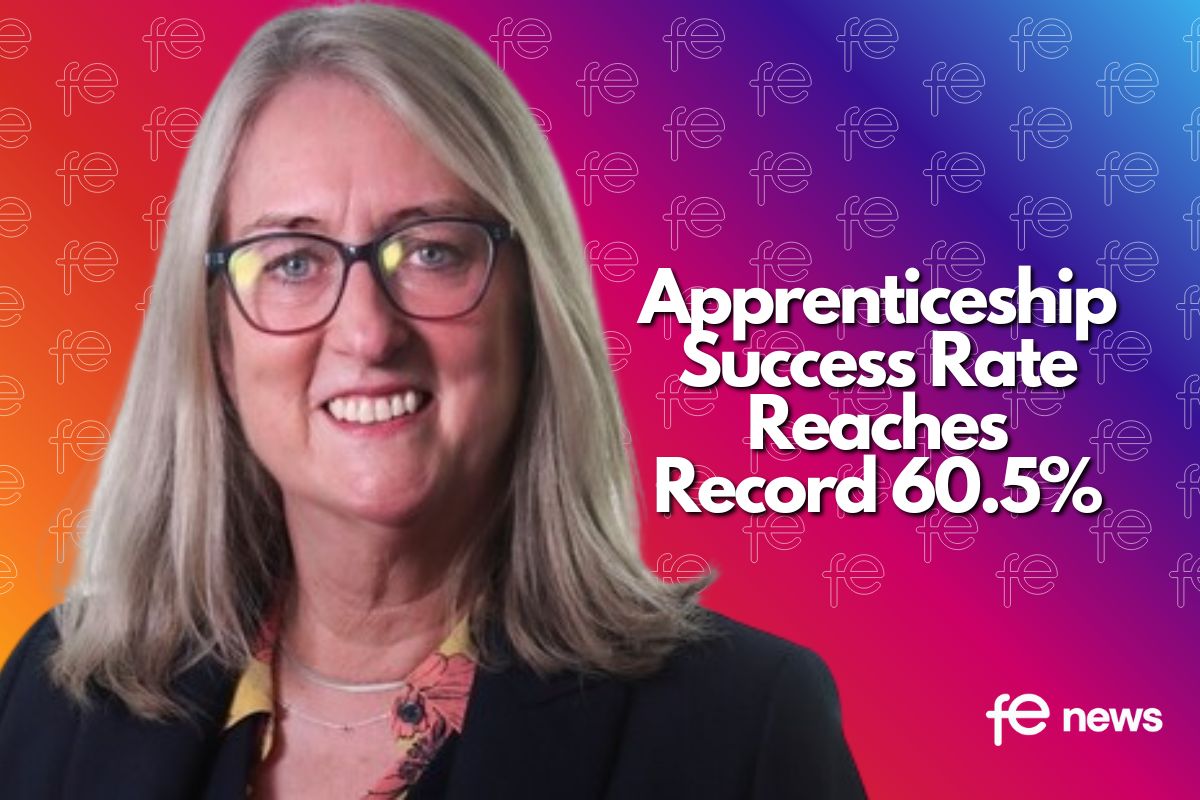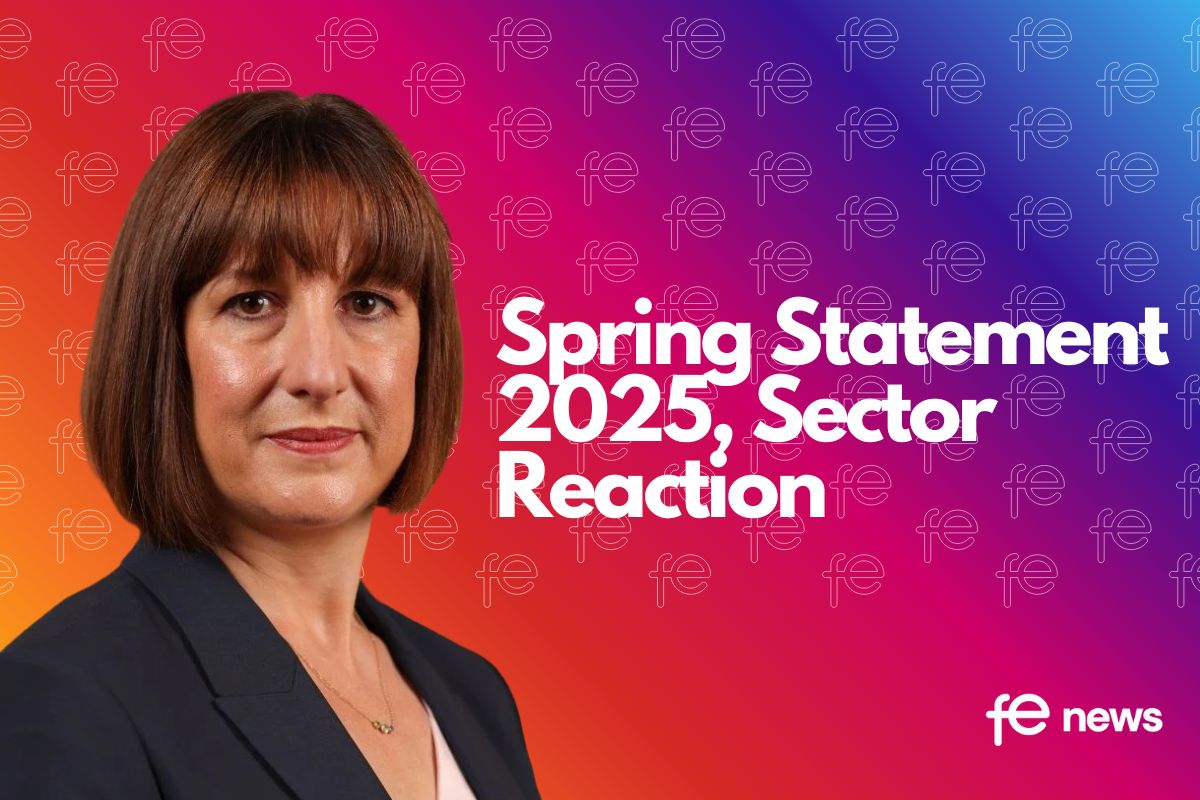Nearly 40% of A-Level results downgraded – Sector Response

Today is #ResultsDay with both #ALevel and #VocationalResults being released today, the Joint Council for Qualifications (@JCQcic) has published the 2020 national results for A and AS Levels. 2020 has been a slightly unusual year, due to the Coronavirus pandemic, this year there were no exams to allocate grades and Gavin Williamson committed to a ‘triple lock’ for students in light of this. So what has this all meant to students picking up their results (via social distancing) today?
Statistics published today show:
- Almost 60% of grades received by students are exactly the same as those submitted by schools and colleges – but nearly 40% were downgraded.
- 98.3% received grades A* to E at A level, up from 97.6% in 2019
- Increase in As and A*s awarded at A level, up from 25.5% in 2019 to 27.9%
- Maths remains the most popular subject at A level with a 2.5% increase in entries this year; entries for 18 year olds increased by 7.7%
- Entries for English A level increased by 1.8% despite a decrease in cohort size
- Computing saw an 11.7% increase in entries, with more girls taking up the subject
- A record number of 18 year olds from the most disadvantaged backgrounds in England have been accepted into university – up 7.3% from last year
- 96.4% of grades were either the same as the one submitted by schools or colleges or only changed by one grade, testament to the excellent judgement and hard work of teachers
Results for vocational and technical qualifications are broadly in line with previous years
UK standards have been maintained and top grades A*-A rise by 2.4 percentage points
The GCE A Level, AS and GCSE examinations were cancelled due to the Covid-19 pandemic and this year’s results are derived from Centre Assessment Grades (CAGs) and rank orders submitted by schools and colleges.
Qualification standards have been maintained by combining these professional judgements with data on historical centre performance and cohort attainment held by exam boards.
This process of standardisation, mandated by Ofqual in England and Qualifications Wales in Wales and CCEA Regulation in Northern Ireland1, has ensured a level playing field across all schools and colleges, avoiding potentially significant grade inflation and preserving the value of these qualifications.
The approach to awarding grades this year is the fairest way of enabling young people to progress with their education or careers.
In the UK overall
- The profile of grades is similar to previous years, with A* grades increasing by 1.2 pp and A*-A 2.4 percentage points (pp) compared to 2019, and the overall pass rate is 0.7pp higher than in 2019 and 2018
- In England 96.4% of grades awarded were the same or within one grade of the submitted Centre Assessment Grade (CAG) (59.1 % awarded the same as the CAG with 35.1% receiving one grade lower and 2.2% one grade higher)
- Mathematics entries increased by 2.5% and English entries by 1.8% in 2020. In contrast, science entries fell by 4.9%. Spanish continues to increase as the most popular modern foreign language, with entries up 0.9%.
- Females achieved more A*-A grades 28.4% against males 27.3%. However, males achieved more A* grades 9.3% against females 8.8%.
- AS Level entries declined by 20.5% this year, following a decrease of 44.1% in 2019, suggesting entries may be beginning to level off.
1 The differences in the standardisation processes reflect the different awarding systems in the three jurisdictions.
STEM – Sciences and Mathematics subjects
The A-Level results show:
- 21.8% increase in the total number of girls taking Computing, (10.1% increase for boys, 11.7% overall)
- There is an overall decrease in students taking the older ICT (15.9% girls, 14.9% boys, 15.3% overall)
- Maths (4.8%) and Further Maths (4.8%) have both seen girls increase ahead of the overall increase in students taking them this year (2.5% Maths, 3% Further Maths)
- Same with Chemistry and Biology – both have seen a decrease in overall students taking them (Chemistry 5.1% and Biology 5.9%) but girls have decreased less (Chemistry 4% girls vs 6.4% for boys, Biology 4.3% girls vs 8.7% for boys)
The numbers above need to be taken in the context of a 2.5% decrease in the total number of students taking exams in the UK. Even so, the statistics paint a positive picture for girls in STEM.
Mathematics extended its lead as the most popular single subject with a total of 94,168 entries up from 91,895. Mathematics now accounts for 12.1% of all A Levels up from 11.5%.
A* grades increased to 17.0%, up from 16.5%, A*-A increased to 41.9% up from 41.0% and overall passes (A*-E grades) increased to 97.7%, up from 96.8%.
While overall total science entries (biology, chemistry, physics) fell in 2020 to 158,976 from 167,244, a 4.9% decline, they still accounted for over 20% of all A Level entries (20.4% in 2020, down from 20.9% in 2019)
- biology entries declined by 6.0% to 65,057 from 69,196 in 2019 (63,819 in 2018)
- chemistry entries declined by 5.2% to 56,026 from 59,090 in 2019 (54,134 in 2018)
- physics entries declined by 2.8% to 37,893 from 38,958 in 2019 (37,806 in 2018)
Female entries fell by less than male entries, and females now account for 50.9% of science entries, up from 50.3% in 2019.
The proportion of A* grades awarded in biology and chemistry were up marginally in 2020 compared to 2019 but were similar to results in 2018: biology A* grades increased to 7.6% from 7.0% in 2019, but was equivalent to 2018; and A*s in chemistry increased to 8.6% up from 7.6% in 2019, but only marginally higher than the 8.4% awarded in 2018.
Physics saw a larger increase in A* grades, increasing to 10.5%, up from 8.7% in 2019 and 9.4% in 2018. It is worth noting that 2019 saw a decline in science outcomes against the backdrop of increasing entry size.
Agata Nowakowska, Area Vice President EMEA, Skillsoft:
“The tears and cheers of this year’s A-level students will have been heightened this year as the lack of final exams will likely have snatched away the opportunity for many to make that last big effort that could have meant the difference between success and failure. It’s impossible to know for sure how big of an impact this will have made to the 2020 results, but it’s fantastic to see that the trend of more girls sitting A-level science subjects has continued this year – particularly Computing. This is the result of a major push in recent years to encourage girls to study science and maths-based (STEM) subjects. There are increasing numbers of female role models who are pioneering change in science-based careers including the hugely talented Sarah Gilbert, who’s leading the Oxford University vaccine team to help defeat Covid-19. Let’s hope that the myth that STEM subjects are primarily the preserve of boys has been busted once and for all.
Isabel Hutchings, Applications Engineer at Content Guru:
“The gender divide in A-level subjects has been a mixed bag over the last few years for Science, Technology, Engineering and Maths (STEM). Despite increases in girls studying Computing and Maths this year, numbers for other key subjects like Chemistry, Biology and Physics are not as positive. As an engineering graduate and now an applications engineer, I know how hard it can be for girls to make the decision to pursue a career in engineering. Much of this comes down to perception – the education system needs to do more to build awareness and knowledge about what engineering is like as a career. A recent report from Engineering UK found almost half of 11 to 19 year olds knew little or almost nothing about what engineers actually do. Worse still, engineering was seen as difficult, dirty, and a career better suited for men. Until we expand the perception of engineering in young people – particularly girls – the situation is unlikely to improve.
“More worrying this year is the accuracy of predicted grades have been shown to limit STEM progress for many young people. Those from disadvantaged backgrounds are especially likely to have their grades under-predicted. A 2015 Cambridge Assessment report showed just 45% of Science and Maths and 42% of ICT/technology grades were accurately predicted. The education system is under unprecedented pressure in 2020 – it’s more important than ever that parents, teachers, universities and employers do everything they can to encourage engineering potential into the workplace.”
Debra Danielson, Chief Technology Officer & SVP of Engineering at Digital Guardian:
“Whilst its encouraging to see a slight increase in the number of girls taking Computing, Maths, and Further Maths, the disproportionate number of girls sitting A-level science subjects this year shines a light on how far we as an industry have to go. There are serious pipeline problems in getting girls and young women to be interested in tech, engineering and STEM. We have problems attracting and keeping female university students interested in computer science. We have problems recruiting and hiring enough women, retaining women beyond mid-career in tech, keeping women in tech careers and not shifting them out. We have pay parity and promotion equity problems and we have to constantly fight pervasive expectations that women aren’t as technical as men.
“At Digital Guardian I’m fortunate to be surrounded by an amazing and diverse team. I never want to work again in an organisation where I’m the “odd man out,” and I’d love it if all women had the opportunity to experience this in their careers – from the classroom to the boardroom.”
Charlie Stripp, MEI Chief Executive and Director of the NCETM, commented:
“Students who studied for mathematics AS/A levels, or for Core Maths qualifications, have equipped themselves well for progression to higher education or employment, even though they weren’t able take their exams this summer. It’s hugely frustrating for students and their teachers that the Covid crisis meant that exams couldn’t go ahead this summer.
“However, the main point of education isn’t to pass exams, it’s to enable students to learn things that help them as individuals, and society as a whole, to be successful. Maths education is crucial to this.
“It’s brilliant news that numbers entered for A level Mathematics and A level Further Mathematics both increased this year. Students with these qualifications are likely to progress to higher education and careers in STEM disciplines or finance that are vital to our national economy.
“The increase in Core Maths entries, up by more than 30% to almost 12,000, is also excellent news. Core Maths is designed to equip all young people with a grade 4 or above in GCSE Mathematics, who do not wish to study for AS/A level Mathematics, with the quantitative skills they need to use maths and statistics with confidence in 2 of 5 CS 13/08/20 Version 2.0 real life contexts.
“This is hugely valuable for their future success, both in the workplace and for further study, whether academic or vocational. This year’s growth in the number of students studying maths beyond GCSE level is very encouraging.
“The demand for advanced mathematical skills and quantitative analysis across a wide range of degree programmes and in the workplace, and the need to understand numbers and data to make sense of the world, continue to increase. We must do all we can to ensure participation in maths education at this level continues to grow.”
English
Overall A Level English entries increased by 1.8%. Within this subject group English Language (6.6%) and English Literature (1.3%) both increased while English Literature & Language continued its recent decline, dropping by 3.9% in 2020.
- English Literature increased by 1.3% to 41,367
- English Language increased by 6.6% to 15,052
- English Literature & Language declined by 3.9% to 7,877
There were small increases in all English subjects at A* and A*-A grades. Pass rates also showed a small increase.
Spanish A Level entries continue to increase
Spanish entries increased by 0.9% up to 8,705, while French entries declined by 1.1% to 8,260. German entries showed a more significant decline of 6.2%, dropping below 3,000 for the first time (to 2,845).
AS Levels
As expected, the decline in AS Level entries continued as a result of the policy changes in England a few years ago, with total entries declining 20.5% to 153,693: this follows reductions of 44.1% in 2019 and 52.5% in 2018.
Sector Response to A-Level Results day 2020
Dr Philip Wright, Director General of JCQ said:
“Students across the UK receiving their A level results today should be proud of their grades, which reflect their hard work and commitment over the previous two years.
“Thank you to all the teachers, senior leaders and exams officers whose efforts to produce the Centre Assessment Grades will mean students are able to move on to the next phase of their education or into employment.”
‘This is a moment for students to celebrate their learning and we wish them all the best as they take their next steps in life.’
 Education Secretary Gavin Williamson has said:
Education Secretary Gavin Williamson has said:
“Congratulations to students receiving their results today – they should feel proud of everything they have achieved in the most extraordinary and difficult circumstances.
“Grades awarded today will open up the doors of opportunity for young people to progress to the next stage of their lives, whether studying at one of our world class universities, taking up an apprenticeship or embarking on the start of their careers.
“Any students who feel they have grounds for appeal now have the safety net of being able to use their mock results as evidence, as well as the chance of sitting autumn exams, thanks to our triple lock process to ensure confidence and fairness in the system.
“The resilience they have shown during these challenging times will serve them well and I wish them all the very best for the future.”
 Kirsty Williams, Welsh Minister for Education, said:
Kirsty Williams, Welsh Minister for Education, said:
“I want to send my very best wishes to everyone who receives their A-level, AS, Welsh Bacc and vocational qualification grades today.
“Due to the many changes we’ve had to make this year in exceptional circumstances, you’ve had to make many sacrifices.
“But you have every reason to be proud of all the work you’ve done, which will serve you well, and proud of the determination you have shown to overcome this challenging time.
“As announced yesterday, we have guaranteed that a learner’s final A Level grade cannot be lower than their AS grade. Students in Wales, and prospective employers and universities across the UK, can be assured that their A Level grades reflect their work and externally assessed exams.
“I hope you get the grades you’d hoped for, and you can continue with your educational journey in the autumn. Although many of you will be pleased with your results and excited for your next step, if you didn’t get what you’d hoped, there’s plenty of options & advice on Working Wales.
“Best of luck, and best wishes for the future.”
 Martin Hottass, Managing Director – Technical Training at City & Guilds Group comments:
Martin Hottass, Managing Director – Technical Training at City & Guilds Group comments:
“This has been an incredibly uncertain year for young people, with face-to-face studies brought abruptly to an end at the beginning of lockdown and almost one million additional young people expected to be out of work by the end of the year. But it’s important to remember that there is hope– we’ve seen an explosion of jobs in areas like nursing and care, meanwhile more Government investment is expected in building and infrastructure projects that will create thousands of jobs in engineering and construction.
“Now is the time for 16- to 18- year olds, their parents and schools to consider the jobs that will be available in the years ahead, and factor this in to their decision when choosing next steps after GCSEs and A Levels. Professional and technical training routes such as T-Levels, which are launching this September, as well as apprenticeships and traineeships, will allow young people to gain the workplace skills that are likely to be in demand in the future and give them the best prospects of finding future employment.
“More than ever, schools need to ensure they are providing students and parents with robust and unbiased advice on careers and the full scope of education routes available, we encourage employers to keep on offering apprenticeships and work placements where possible.”
 Dr Mary Bousted, Joint General Secretary of the National Education Union, said:
Dr Mary Bousted, Joint General Secretary of the National Education Union, said:
“The politics of results season 2020 has drowned out the most important point – that students must be congratulated for their hard work and patience through a difficult time for the whole nation. Teachers and school and college leaders have tried their best, during a time of great uncertainty, to support and help the young people they teach. They have been let down by a poor system and last-minute political decisions.
“Students have been knocked from pillar to post this year through no fault of their own. In Scotland, many pupils suffered a week of real anguish over lower grades than they expected, only for their centre assessed grades to be reinstated. Wales has the benefit of external exams (AS Levels) taken partway through the A Level course to use as a backstop – unlike in England, where Gavin Williamson has taken pre-emptive measures which only serve to show he has no confidence in and cannot defend the system he created during lockdown.
“Williamson’s plan is a real insult to young people and their parents, who depend on a credible system which is supposed to help students on their way to a bright future. For those having to sit autumn exams, that future will now be postponed. For others, the competition for university places has been intensified due to different decisions being made in Scotland. And it remains to be seen quite how unfair the Government’s plan will be for students from disadvantaged backgrounds.
“Years of misconceived structures in the exams process have come back to haunt the Westminster Government. Students have been downgraded for reasons which to them will be obscure. So not only will the result be devastating, but many will discover it has nothing to do with their own performance and everything to do with the past attainment of their school. Student prospects this year were governed by an algorithm, and the unfairness of that process has been fully exposed.
“Gavin Williamson’s solution is no ‘triple lock’ but a menu of bad options. Teachers and pupils who know how mock exams differ even among subjects in the same school will wonder what counts as a ‘valid’ mock exam result, and the suggestion that this should be viewed as more reliable than teacher assessment is simply nonsensical. In other nations, pupils at least have the security of AS Level results giving a percentage of their final grade, rather than basing their entire future on a single set of exams.
“This is why the appeals process is more important than ever. It needs to be accessible to all and resourced properly to cope with demand, so that no further delays are created in the lives of young people.
“And, in the longer term, the A Level system that was once hailed by politicians as a gold standard needs to be radically overhauled.
“The Scottish Government realised it had made a mistake, apologised and promised to put it right. Gavin Williamson has apologised and promised to put things right, but his solution causes more problems than it solves. We are now, at the eleventh hour, dealing with a crisis which should never have arisen. The only solution is to award students the grades their teachers – who know them better than any computer data prediction – think they would have achieved.
“This pandemic is not over yet and the course of Covid-19 will lead to big changes in society and in education. Now is the time for the Government to sit down, with heads, teachers and their union representatives, to talk about how we can all deliver the best for the children we teach and restore confidence in our qualifications and exam system.”
 Sir Michael Barber, Chair of the Office for Students (OfS) said:
Sir Michael Barber, Chair of the Office for Students (OfS) said:
‘Students receiving A-level results today have faced unprecedented challenges and disruption – I congratulate them for their hard work over the course of their studies. Demand for university places remains strong. But there are also lots of places available through Clearing and universities have said they will show flexibility when making admissions decisions – this means using contextual information and judging a student by other evidence of their potential to succeed along with their grades.
‘We are working with universities to ensure that they continue to make progress towards the goals agreed with the OfS through their access and participation plans, for which the decisions made this year about students from the most disadvantaged communities across the country will be crucial.
‘For students making decisions about what and where to study in the days ahead, it is vital that they have access to good independent information and guidance. In addition, universities should set out as clearly as possible what prospective students can expect next term, particularly around how courses will be taught. Students can also compare courses on our Discover Uni website, which is specifically designed to give them the information they need to make the choices that are right for them.’
 Kate Green MP, Labour’s Shadow Education Secretary, responding to the confirmation that thousands of pupils’ A-level results have been downgraded, said:
Kate Green MP, Labour’s Shadow Education Secretary, responding to the confirmation that thousands of pupils’ A-level results have been downgraded, said:
“Today is always an anxious day for pupils and parents across the country. That anxiety is far worse this year because of the fiasco caused by the Conservative Government.
“I wholeheartedly congratulate those young people who have received the grades they deserve after working so hard. But across the country, many young people will be opening their results today to find grades which undermine their work and their potential. It is a huge injustice that pupils will see their results downgraded just because of their postcode.
“We will look at the breakdown of the results, but it is clear the government’s approach to exams has been chaotic.
“Ministers must act urgently to correct the injustice faced by so many young people today. Students must be able to lodge their own appeals if they haven’t got the grade they deserved and admissions teams must be forced to be more flexible. No student should see their dreams slip away because of this government’s inaction.”
 NASUWT General Secretary Dr Patrick Roach, said:
NASUWT General Secretary Dr Patrick Roach, said:
“Pupils have faced an enormous amount of uncertainty and anxiety over the arrangements for receiving their A-level grades and their options if they are unhappy with their results.
“Whilst it will be appreciated that the Coronavirus pandemic has created very challenging conditions for students and for schools and colleges, last minute changes to the arrangements for this year’s awards have heightened the stress and anxiety for many young people.
“No young person’s future life chances should be compromised as a direct consequence of the decision this year to cancel examinations due to the Coronavirus pandemic.
“At the centre of this latest political storm are those young people whose futures depend on their awards and the consequences of Ministerial decisions.
“Employers, together with further and higher education institutions and training providers, should be encouraged to be flexible when making recruitment and admissions decisions this year.
“Lessons will need to be learned on how best to secure a more resilient qualifications system which recognises fairly the achievements of all students next year and in future years.”
Natalie Perera, Executive Director of the Education Policy Institute (EPI), said:
“Today’s A level results will have caused frustration for many tens of thousands of students, who are now worried that their grade is unfair or inaccurate. There also may well be a significant number of schools whose improved performance has not been recognised, while universities are now having to create new admissions rules to cope with delays while appeals go through.
“While the exceptional circumstances surrounding this year’s results were always going to create several challenges, many of these problems could have been avoided.
“EPI has been warning for months that placing too much weight on Ofqual’s grade standardisation model would lead to errors, biases and widespread dissatisfaction come results day. Schools should have been given the opportunity to challenge the standardisation model early on, without relying so heavily on an appeals process which will now only cause further disruption, delay and anxiety for students.
“The late decision to allow appeals on the basis of mock results does very little to solve the question of fairness. Far from a guarantee for students, the government’s “triple lock” system merely adds an additional layer of uncertainty.
“There are early signs today that the results process may have had a disproportionately negative impact on the most disadvantaged students. It is crucial that we establish whether this is the case as new data emerges.”
 Matthew Fell, CBI Chief UK Policy Director, said:
Matthew Fell, CBI Chief UK Policy Director, said:
“Congratulations to those getting their A-Level results today, after many years of hard work and determination.
“Despite tough times ahead for the economy, employers are committed to creating opportunities for young people to get their first foot on the ladder.
“Businesses know this has been one of the most challenging years for students in recent memory. Regardless of today’s outcome, the fact is there is more than one path to a successful career.
“Whether going on to further study or entering the world of work, the resilience demonstrated by young people throughout this unprecedented period will be a key ingredient to their success.
“As students start the next chapter of their lives, building on these personal attributes alongside good communication and creative flair will undoubtedly improve their long-term career prospects.”
On the regional disparities in pupils achieving top grades, Matthew said:
“Education helps open doors and creates opportunity for young people as they start out in their adult lives.
“As we build our economy back better, businesses want to see education and job opportunities levelled up right across the country.
“More financial support for apprenticeships will help, as well as strong partnership to make a success of the Kickstarter scheme.
“Together, these steps will help the next generation in realising its full potential. We must not allow the pandemic to obstruct this, or worse yet, deepen existing social inequality.”
On STEM subject uptake, Matthew said:
“Companies will be delighted to see the uptake of STEM subjects holding steady and students performing well.
“With maths remaining the most popular subject and science accounting for a fifth of all entries, these skills will undoubtebly help businesses innovate and reap the benefits of digital and technological advances in the workplace.”
On decreases in modern foreign language uptake, Matthew said:
“Our country’s position as a global trading nation means it’s vital to be able to communicate with customers and suppliers globally. Business demand for foreign language skills has skyrocketed, but uptake of these subjects has proven stubbornly low.
“Reversing this trend is critical to increasing the UK’s international competitiveness and to ensuring young people have the high level of cultural awareness that supports a successful career.”
NUS President Larissa Kennedy said:
“It is fundamentally unjust that over a third of students will not receive the results they deserve today, because of the classist, racist moderation system designed by the Westminster government. The ‘triple lock’ announced yesterday was a botched solution which has provided students with no certainty about how they can appeal the grades they receive. England must follow Scotland’s lead and scrap moderated grades, moving to give all students their teacher assessed grades.
“We must look at what this will mean for individual students without such action, many of whom will miss out on opportunities to attend the university of their choice because of this process. For 3% of students to have had their results downgraded by two grades means that there will be thousands of students receiving results that are no reflection of their true ability.
“Despite all of the chaos around assessments, we must recognise the extraordinary efforts of students this year. They have all worked so hard and overcome so many barriers, including a global pandemic. Not only have they achieved academically, but many students have stepped up for their communities, by establishing mutual aid groups and becoming key workers.
“Now is the time for the Government to do right by students. They must scrap moderated grades this year, introduce a fair and free appeals process for all students and commit to an overhaul of our current system of exams and grading. In the meantime, we hope universities and colleges show understanding and flexibility where students are hoping to take up courses next year.”
Prof Sir Anton Muscatelli, Chair of the Russell Group and Principal and Vice-Chancellor of the University of Glasgow, said:
“Congratulations to all students on their hard-earned A Level results and good luck to everyone who is planning their next steps, whether that is at university, college, an apprenticeship or the world of work.
“Our message to those who may have missed their grades is not to panic and to contact their first-choice universities to discuss their options. It is a unique and unprecedented results season and our universities are being as flexible as possible with admissions. They are taking a range of factors into account to ensure no students, particularly those from disadvantaged backgrounds, are unfairly affected and can benefit from the world-class higher education offered by Russell Group universities.
“Students receiving their results this summer have dealt admirably with an unprecedented set of circumstances and should be very proud of what they have achieved. Our universities are ready to welcome them and are working hard to provide the safest and best possible experience for every student.”
Martina Kane, policy lead for the Health Foundation’s Young People’s Future Health inquiry said:
“The impact of the pandemic on A-level students is a clear example of how COVID-19 is a threat not just to people’s health today but also to the future health of young people in the UK and risks widening inequalities.
“Young people no longer have clear pathways into the next steps of education and work, and having experienced a significant gap in classroom learning, they will face an uphill struggle securing the foundations for a healthy life.
“Our Young people’s future health inquiry identified the critical importance of appropriate skills and education. Evidence shows that by the age of 30, those with the highest levels of education are expected to live four years longer than those with the lowest levels of education, even when they come from the same background. While the focus today is rightly on those receiving their exam results, we must look at how we can support all young people in all forms of education to achieving a healthier future.”
Standardisation
Grades submitted by school and colleges (known as Centre Assessment Grades or CAGs) and rank orders formed the basis for the standardised final grades. Standardisation was necessary in order to ensure parity between the way grades were awarded from different schools and colleges, putting all students on a level playing field.
The mechanism to determine each grade was:
- to be based on each students’ ability in the subject, based on an exam centres’ assessment, supplemented by a range of evidence; and
- ensuring that qualification standards are maintained, and the distribution of grades follows a similar profile to previous years.
The exam boards and JCQ have worked to deliver results this year in a way that is as fair as possible given the circumstances, using the standardisation model developed by regulators.
Ofqual has published information on their standardisation model, which is based on three key sources of information:
- Centre Assessment Grades (CAGs) and rank orders of entered students in each subject, reflecting their achievements and work over the previous two years;
- the historical record of the centre; and
- the prior attainment of the cohort of students for each subject.
These results are issued to students across the UK but predominantly in England, Wales and Northern Ireland.
Other modern languages are Arabic, Bengali, Chinese, Dutch, Gujarati, Italian, Japanese, Modern Greek, Modern Hebrew, Panjabi, Persian, Polish, Portuguese, Russian, Turkish, and Urdu.
All awarding organisations are answerable to the regulatory authorities – Ofqual (England), Qualifications Wales (Wales) and CCEA Regulation (Northern Ireland). The regulatory authorities monitor the awarding bodies’ standards. In addition, the awarding organisations themselves conduct a number of comparability studies to compare standards. Maintaining standards within and across all qualifications in order to ensure fairness to all candidates is the paramount concern of the awarding bodies.











Responses